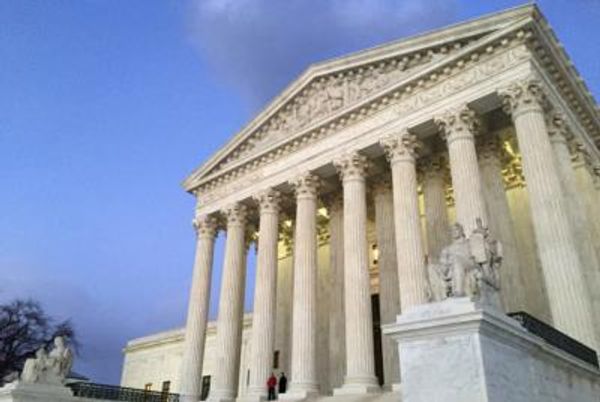A hospital in the Bristol area has seen its rating improve to requiring improvement from inadequate on its latest inspection. However, the inspector raised several concerns including racist behaviours and discrimination against staff from ethnic minority backgrounds.
This comes after last year workers at University Hospitals Bristol and Weston NHS Trust (UHBW) - which runs the BRI, Bristol Children’s Hospital and Weston General - told watchdogs from the Care Quality Commission (CQC) that managers had told them to use their ‘Western work names’ while on duty because their own are too hard to pronounce.
In an inspection report published today, the CQC has improved the overall rating at Weston Hospital from inadequate to requires improvement. It states on the report that the hospital has been rated as requires improvement for several reasons, including the design, maintenance and use of facilities, premises and equipment not always keeping people safe.
UHBW has welcomed the CQC report and the improved rating for medical care services, but said it was saddened and disappointed that colleagues from ethnic minority backgrounds are experiencing discrimination. The trust said it had a zero-tolerance approach to discrimination and that tackling cultural issues continues to be a priority for them.
The report found that some staff said they often worked excessive hours, adding that ward managers and matrons in particular worked excessive hours to complete their tasks. They often worked on wards to keep patients safe by ensuring there were enough staff to care for them.
"Despite the positive culture which was so prominent in areas we visited, we heard of cultural issues that centred on poor experiences being had by staff from minority ethnic backgrounds," the report states. "There were ongoing concerns around racist behaviours and discrimination felt by staff who were from ethnic minority backgrounds.
"Additionally, to this we heard of problems faced by staff who had been recruited from overseas. Due to the requirements relating to these staff, the timeframe for them being able to fully take up posts was extended.
"This caused friction in some areas and risked them being segregated as a group from the rest of the workforce. We raised these concerns with the leadership of the trust immediately and were provided reassurance this issue would be tackled as a priority."
The inspector made three recommendations around the medical care at the hospital, including ensuring the environment in the surgical day case unit is fit for purpose for patients staying overnight.
Regarding the surgical day case unit, inspectors found: "Patients did not have access to individual lighting by their bed. This meant, at night, lighting for the whole ward had to be turned on when staff needed to assess patients.
"When we inspected the hospital in the evening the following week, we found lamps had been provided at the nurses desks, so they were able to work at night. However, this still meant patients were not able to decide when they wanted to turn off their own lights to sleep.
"Patient beds were close together, which limited the privacy for patients. This proximity of each bed meant there was no room for patient lockers, or for chairs for patients or visitors to use.
"There were patients remaining on the unit for a week or more, which was outside of the standard operating procedure and there were no shower facilities on the unit. This meant patients needed to leave the ward to have a shower in another ward area and were reliant on staff being available to take them to another ward to shower."
The inspectors also found that staff did not always identify and quickly act upon patients at risk of deterioration of venous thromboembolism assessments (VTE), adding that VTE assessments had not been consistently completed and reviewed and this created a risk for patients.
"Although staffing levels kept patients safe, this was achieved by moving staff at the beginning of each shift to ensure there was adequate cover across all areas of the hospital," it continued. "It was also achieved by having ward managers ‘act down’ into roles on the ward.
"Staff told us medical staffing out of hours, especially at weekends, was stretched. Management capacity for matrons and ward managers was impacted by operational pressures."
However, the CQC also found that the service had enough staff to care for patients and keep them safe and that the service controlled infection risk well. Good care and treatment was provided by staff, it also found, while staff worked well together for the benefit of patients and treated them with compassion and kindness.
Leaders were also found to have the capacity and skills to run services well and the CQC found "staff were dedicated to the future direction of the hospital", adding "there was a clear, systematic and proactive approach to engaging and communicating with staff regarding the strategy and vision of the hospital".
Inspectors found the hospital had succeeded in reducing its level of medical staff vacancies and was aiming to fill the remaining medical vacancies by the end of August 2022, with significantly reduced reliance on locum and bank staff.
Back in April 2020, University Hospitals Bristol NHS Foundation Trust and Weston Area Health NHS Trust merged to form a new organisation, University Hospitals Bristol and Weston NHS Foundation Trust (UHBW). Weston General Hospital was last inspected in June 2021, when it was rated inadequate.
Catherine Campbell, CQC head of hospital inspection, said: “Following our latest inspection of Medicine at Weston Hospital, part of University Hospitals Bristol and Weston NHS Foundation Trust, we were pleased to see improvements had been made, and standards of care for people as well as their experiences had improved.
“We found a clear, proactive approach to engaging and communicating with staff regarding the strategy and vision of the hospital. Staff were dedicated to the future direction of the hospital and understood their role in its commitment to be a thriving hospital at the heart of the community, providing the care people need most often. These improvements are testament to the hard work and commitment made by staff and leaders, who have made great strides since our last inspection in June 2021.
“While the trust recognises there is still work to do, the progress that has been made is extremely encouraging and I look forward to seeing it build on these strong foundations in all other core services provided by the trust.”
What UHBW NHS Foundation Trust says
Eugine Yafele, chief executive at University Hospitals Bristol and Weston NHS Foundation Trust, said: “We welcome this CQC report and the improved rating for medical care services at Weston General Hospital. Three of the five areas assessed are now rated Good, with an improvement in our overall rating for these services to Requires Improvement.
“We are pleased inspectors found many positives, including how staff treat patients with compassion and kindness, respect their dignity and take account of their individual needs. The CQC found exemplary practice in staff dedication to the future direction of the hospital as a thriving hospital at the heart of the community, providing the care people of all ages need most.
“Whilst all this is a significant step in the right direction, we know there is more to do. We are committed to making the necessary improvements, building on the many successful initiatives already underway and ensuring our talented and dedicated staff have the time and resources they need to deliver excellent care to our patients.”
He added: "We’re saddened and disappointed that our colleagues from ethnic minority backgrounds are experiencing discrimination at work. We have a zero-tolerance approach to discrimination of any kind and tackling the cultural issues continues to be a priority for us.
"We are determined to ensure that all staff feel respected and supported at work and we are clear that any poor behaviour towards colleagues is not ok. We have a clear action plan in place to address the lived experiences of Black, Asian and Minority Ethnic colleagues including but not limited to listening events, reverse mentoring, a talent management scheme and mutual respect toolkits for staff.
“The CQC have made no mention of the previous issue regarding Western work names in their latest report. However, to be absolutely clear again, there is no management instruction for staff to adopt Western names at work and the additional equality, diversity and inclusion training we have put in place for staff addresses micro-aggressive behaviours such as this which will not be tolerated by the Trust.”
Read next:
- BAME Bristol hospital staff told to use easier-to-pronounce "Western" names
- Doctor's dismissal was 'unfair' but tribunal agrees he should have lost his job after harassing colleague
- Lockleaze man jailed for historic abuse of teen
-
Dog bites police officers after owner found high on drugs
- Nailsea man downloaded illicit photos for 20 years







